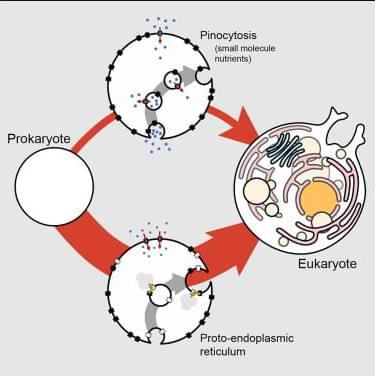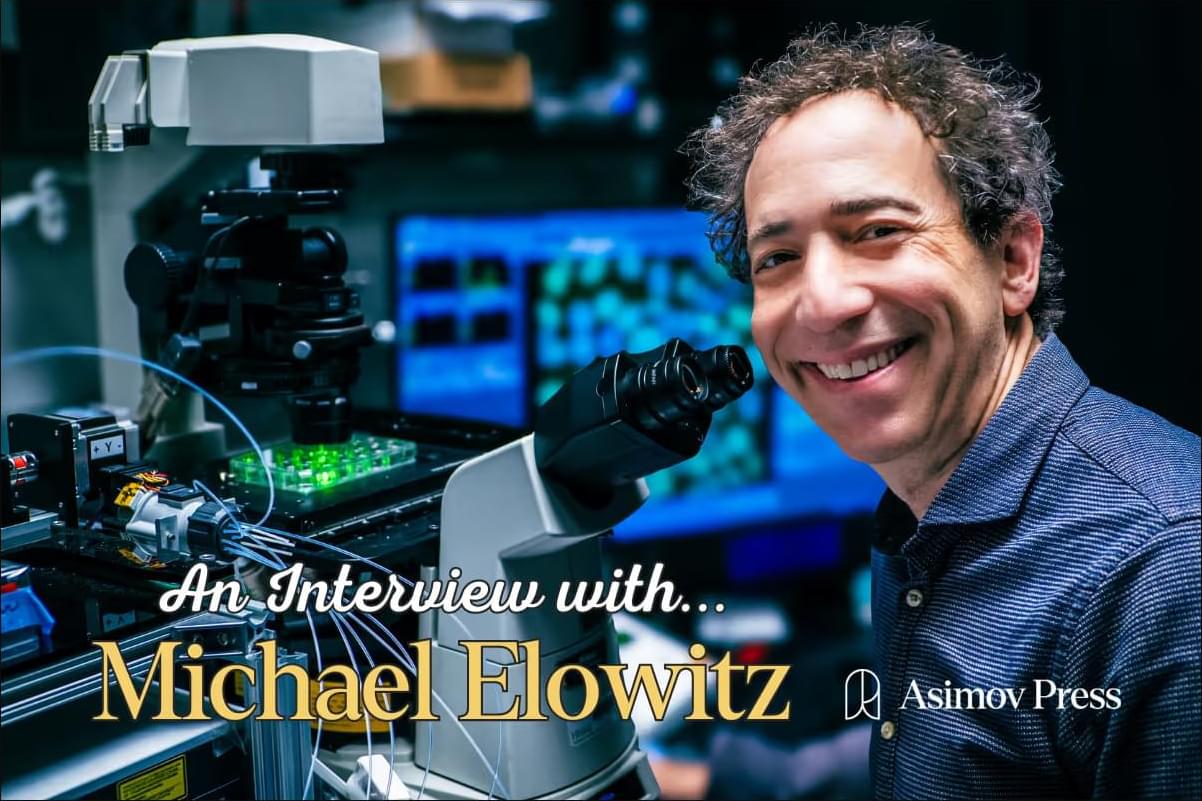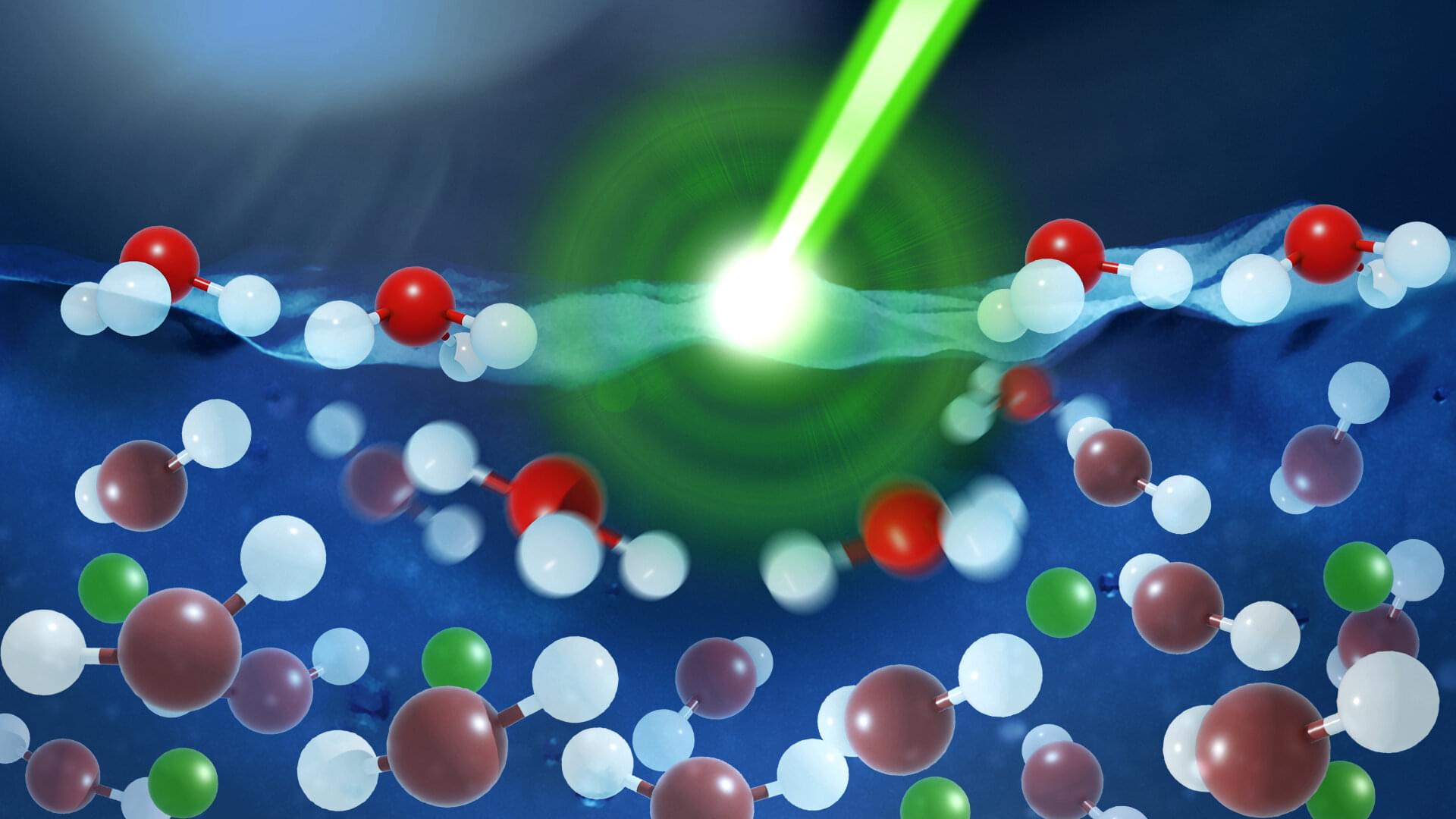The biological computer system can stay alive for up to six months and is compatible with USB devices.



Schavemaker and Lynch derived functions that relate the cell biology of endomembranes to cellular fitness. Applied to the pinocytosis of small-molecule nutrients and the insertion of membrane proteins by a proto-endoplasmic reticulum, the proto-endoplasmic reticulum is revealed to be the more likely path to complex endomembranes in the origin of eukaryotes.

A single-celled microbe that revels in Earth’s most hostile salt lakes has the remarkable ability to transform its mote of a body into multicellular tissue when the pressure’s on.
“The advent of clonal multicellularity is a critical evolutionary milestone,” the international team who made this discovery, led by Brandeis University pathobiologist Theopi Rados, write in their new paper.
Haloferax volcanii is a member of the often-overlooked archaea domain, which looks quite similar to bacteria and yet have more in common with our own domain, eukaryota. Multicellularity is common in eukaryotes and rare among bacteria, and as far as we know, H. volcanii is only the second archaeon found to take this multicellular leap.
BiOptimizers Magnesium Breakthrough 10% with code Modern10 https://bioptimizers.com/modern. This video brought to you by BiOptimizers. Here Dr Michael Lustgar…
In this remarkable conversation, Michael Levin (Tufts University) and Blaise Agüera y Arcas (Google) examine what happens when biology and computation collide at their foundations. Their recent papers—arriving simultaneously yet from distinct intellectual traditions—illuminate how simple rules generate complex behaviors that challenge our understanding of life, intelligence, and agency.
Michael’s \
A new AI robot called π-0.5 uses 100 decentralized brains, known as π-nodes, to control its body with lightning-fast reflexes and smart, local decision-making. Instead of relying on a central processor or internet connection, each part of the robot—like fingers, joints, and muscles—can sense, think, and act independently in real time. Powered by a powerful vision-language-action model and trained on massive, diverse data, this smart muscle system allows the robot to understand and complete real-world tasks in homes, even ones it has never seen before.
Join our free AI content course here 👉 https://www.skool.com/ai-content-acce… the best AI news without the noise 👉 https://airevolutionx.beehiiv.com/ 🔍 What’s Inside: • A groundbreaking AI robot called π‑0.5 powered by 100 decentralized “π-nodes” embedded across its body • Each node acts as a mini-brain, sensing, deciding, and adjusting without needing Wi-Fi or a central processor • A powerful vision-language-action model lets the robot understand messy homes and complete complex tasks without pre-mapping 🎥 What You’ll See: • How π‑0.5 combines local reflexes with high-level planning to react in real time • The unique training process using over 400 hours of diverse, real-world data from homes, mobile robots, and human coaching • Real-world tests where the robot cleans, organizes, and adapts to brand-new spaces with near-human fluency 📊 Why It Matters: This new system redefines robot intelligence by merging biological-inspired reflexes with advanced AI planning. It’s a major step toward robots that can handle unpredictable environments, learn on the fly, and function naturally in everyday life—without relying on cloud servers or rigid programming. DISCLAIMER: This video explores cutting-edge robotics, decentralized AI design, and real-world generalization, revealing how distributed intelligence could transform how machines move, sense, and think. #robot #robotics #ai.
Get the best AI news without the noise 👉 https://airevolutionx.beehiiv.com/
🔍 What’s Inside:
• A groundbreaking AI robot called π‑0.5 powered by 100 decentralized “π-nodes” embedded across its body.
• Each node acts as a mini-brain, sensing, deciding, and adjusting without needing Wi-Fi or a central processor.
• A powerful vision-language-action model lets the robot understand messy homes and complete complex tasks without pre-mapping.
🎥 What You’ll See:
• How π‑0.5 combines local reflexes with high-level planning to react in real time.
• The unique training process using over 400 hours of diverse, real-world data from homes, mobile robots, and human coaching.
• Real-world tests where the robot cleans, organizes, and adapts to brand-new spaces with near-human fluency.
📊 Why It Matters:


Charged surfaces in contact with liquids—such as biological cell walls or battery electrodes—attract oppositely charged ions from the liquid. This creates two distinct charged regions: the surface itself and a counter-charged region in the liquid: the so-called electrical double layer. While pivotal to energy storage devices, the speed of its formation has remained elusive.
A team of researchers has now developed a light-based technique to observe this ultrafast process. The results validate previous models and extend their applicability to diverse systems, from biological membranes to next-generation energy storage devices.
The work is published in the journal Science.
A new brain-inspired AI model called TopoLM learns language by organizing neurons into clusters, just like the human brain. Developed by researchers at EPFL, this topographic language model shows clear patterns for verbs, nouns, and syntax using a simple spatial rule that mimics real cortical maps. TopoLM not only matches real brain scans but also opens new possibilities in AI interpretability, neuromorphic hardware, and language processing.
Join our free AI content course here 👉 https://www.skool.com/ai-content-acce… the best AI news without the noise 👉 https://airevolutionx.beehiiv.com/ 🔍 What’s Inside: • A brain-inspired AI model called TopoLM that learns language by building its own cortical map • Neurons are arranged on a 2D grid where nearby units behave alike, mimicking how the human brain clusters meaning • A simple spatial smoothness rule lets TopoLM self-organize concepts like verbs and nouns into distinct brain-like regions 🎥 What You’ll See: • How TopoLM mirrors patterns seen in fMRI brain scans during language tasks • A comparison with regular transformers, showing how TopoLM brings structure and interpretability to AI • Real test results proving that TopoLM reacts to syntax, meaning, and sentence structure just like a biological brain 📊 Why It Matters: This new system bridges neuroscience and machine learning, offering a powerful step toward *AI that thinks like us. It unlocks better interpretability, opens paths for **neuromorphic hardware*, and reveals how one simple principle might explain how the brain learns across all domains. DISCLAIMER: This video covers topographic neural modeling, biologically-aligned AI systems, and the future of brain-inspired computing—highlighting how spatial structure could reshape how machines learn language and meaning. #AI #neuroscience #brainAI
Get the best AI news without the noise 👉 https://airevolutionx.beehiiv.com/
🔍 What’s Inside:
• A brain-inspired AI model called TopoLM that learns language by building its own cortical map.
• Neurons are arranged on a 2D grid where nearby units behave alike, mimicking how the human brain clusters meaning.
• A simple spatial smoothness rule lets TopoLM self-organize concepts like verbs and nouns into distinct brain-like regions.
🎥 What You’ll See:
• How TopoLM mirrors patterns seen in fMRI brain scans during language tasks.
• A comparison with regular transformers, showing how TopoLM brings structure and interpretability to AI
• Real test results proving that TopoLM reacts to syntax, meaning, and sentence structure just like a biological brain.
📊 Why It Matters: